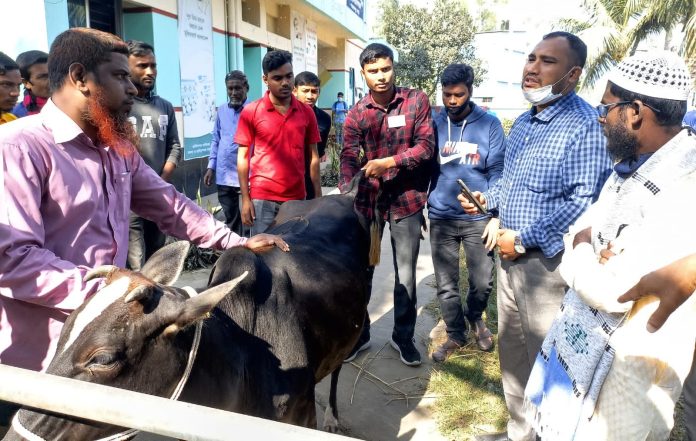Salman Mia, from Ashtagram of Kishoreganj, is a school dropout. Like many school children in rural Bangladesh, Salman was forced to stop pursuing his education and look for work instead to support the family. But he did not have the required skills that would land him a decent job. Salman kept looking. In the meantime, he took a three-month vocational training on mobile phone servicing under PPEPP project. After the training, he received the necessary equipment to start a mobile phone servicing shop. Thanks to his ever-growing skills, his monthly income has already reached BDT 10,000, give or take. With this money, he can now support his family and save some for his future.
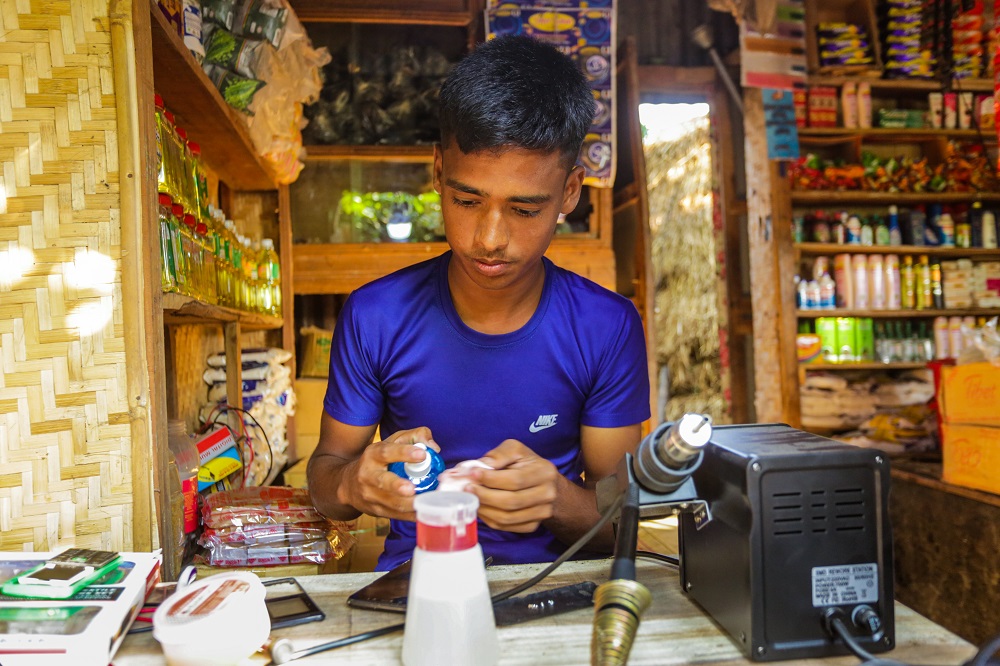
Like Salman, many PPEPP members are now engaged in various trades after receiving farm, off-farm and vocational skills training under the project. The project conducts these training to develop skilled manpower in target households and to help community people to find gainful employments. These training are aimed at enabling the target population to come out of poverty by being engaged in IGAs, vocational trades and services that are in high demand in the locality.
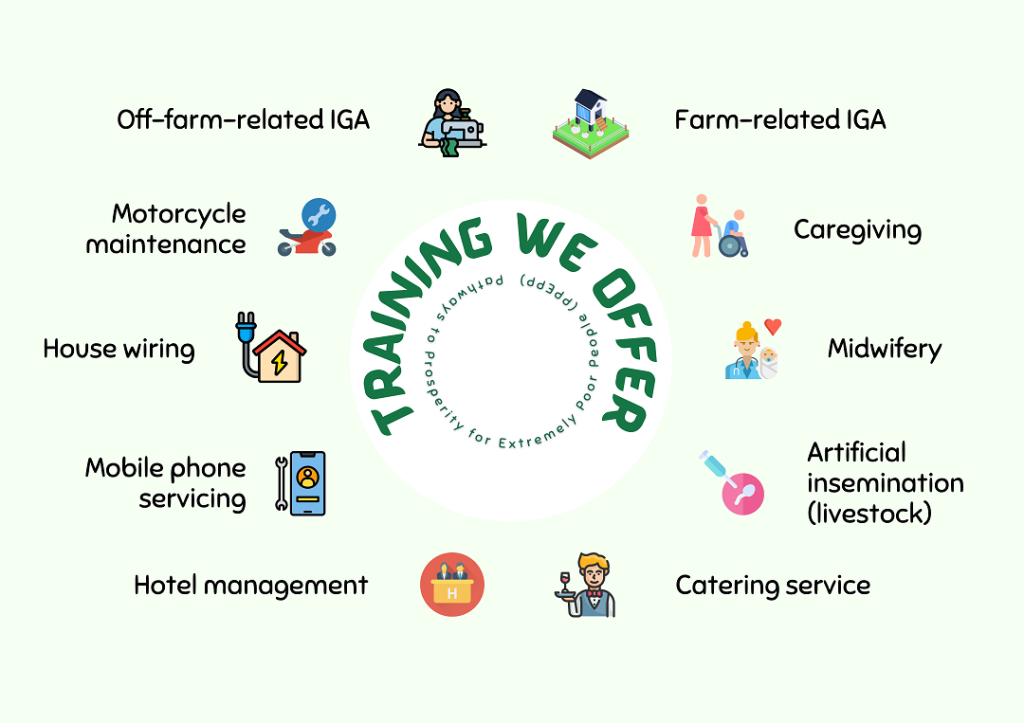
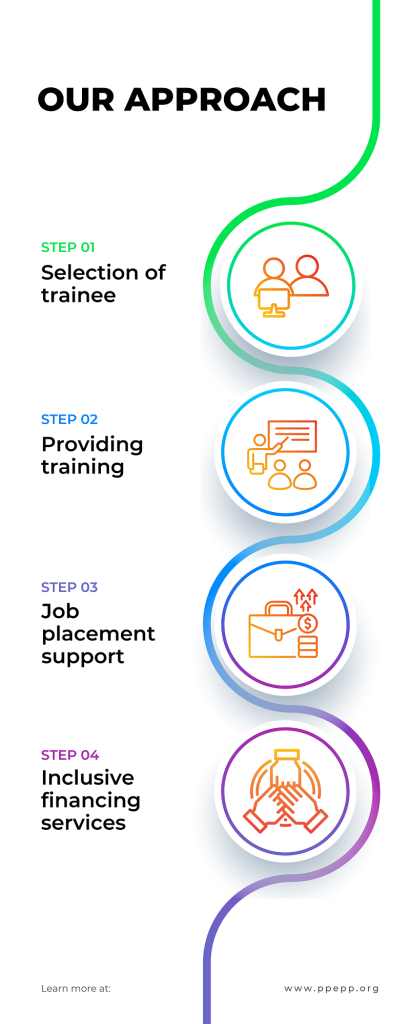
In addition to training project participants, PPEPP trains other members of the target households in various trades such as Livestock and Poultry Service Provider (LPSP) and Artificial Insemination (AI). After training, these members provide various technical services related to feed management as well as disease prevention. These services are very crucial in remote working areas where government facilities are understaffed or are very far from the project participants’ households.
The project organises both residential and non-residential training, which is free. In addition, participants receive food, accommodation, travel allowance and required training materials (i.e., sewing machine for tailoring training). To ensure job placement after training, the project establishes linkage with the local job market. Besides, the project provides financial support to the successful candidates upon completion of the training to engage in relevant trades.
These training programmes are open for all eligible target people. However, to support the most vulnerable and disadvantaged people in the working area, the project prioritises the following groups for inclusion in the training. Under the project, as many as 17,640 members received crop, livestock and fisheries-related training, while 169 young men and women received vocational training in different trades.


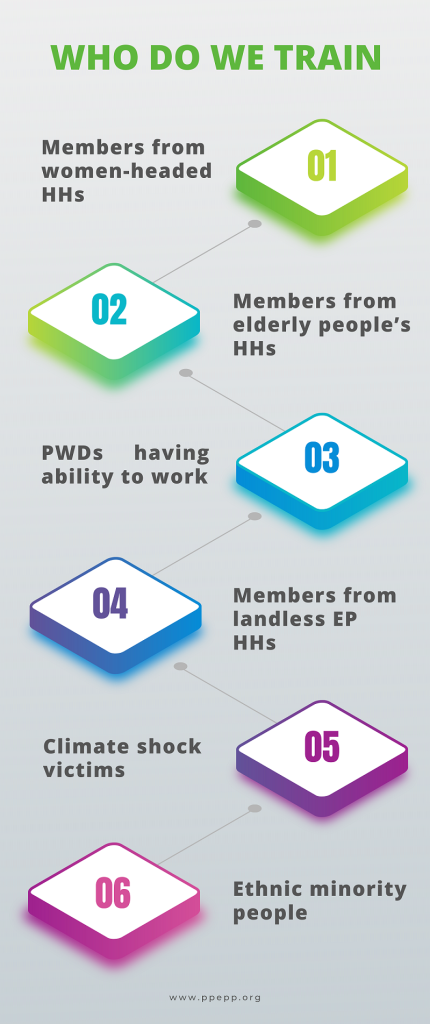
Shanta Rani is an ethnic adolescent girl from Gaibandha who was looking to enhance her family income. When PPEPP project started operations in her ethnic minority community, she took a month-long training on making doormat. Now, after more than one year of experience, she can make a small-size doormat in one day, which fetches her BDT 300-400, and a medium-size one in two days, which she can sell for BDT 800-900. In each case, she can profit nearly half the sale value.
Now, after more than one year of experience, she can make a small-size doormat in one day, which fetches her BDT 300-400, and a medium-size one in two days, which she can sell for BDT 800-900. In each case, she can profit nearly half the sale value.
With the linkage support from the project, Shanta need not worry much about selling her products. Often, she can sell them just by sitting at her home as buyers collect the item from her doorstep.
“I have bought one cow and two goats with my profit. I can also support my family. I am much better off now,” said Shanta, who is also supporting her college education with her own income.


